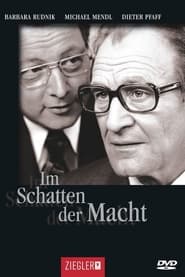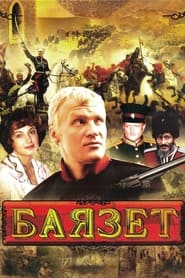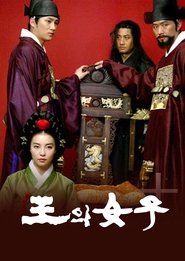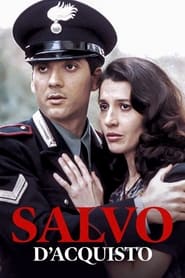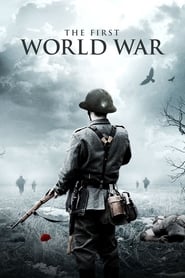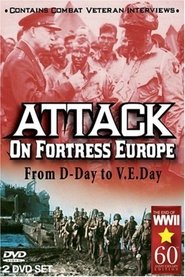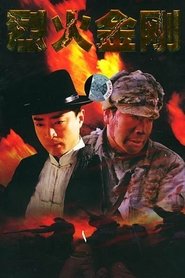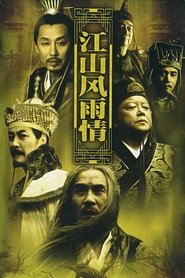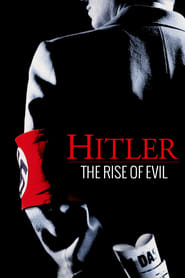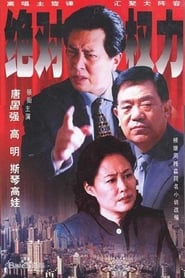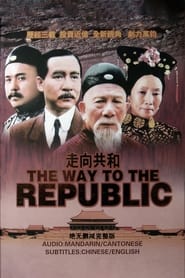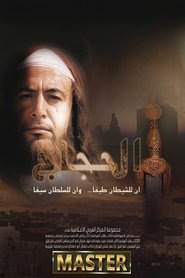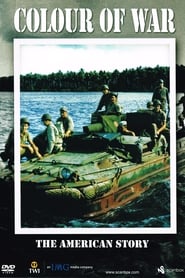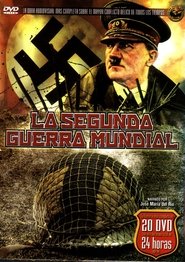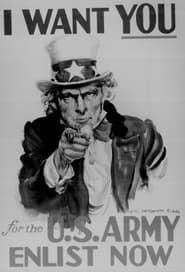New War Politics TV Series on Pantaflix - Page 101
-
Bayazet
2003
-
The King’s Woman
2003
The King’s Woman
2003
star 7This drama centers around Lady Kim, a scheming concubine, and the events from the reign of King Seonjo to Prince Gwanghae, which were filled with acts of immorality and bloodshed; all in the name of protecting the throne. -
Salvo D'Acquisto
2003
Salvo D'Acquisto
2003
star 5.6During World War II, 22-year-old Carabinieri deputy brigadier Salvo D'Acquisto makes an heroic gesture of self-sacrifice by "confessing" an act of sabotage for which 22 civilians had been rounded up by the Germans, and is executed by firing squad in their place on September 23, 1943. -
The First World War
2003
The First World War
2003
star 7.2This ten-part docuseries tells the comprehensive story of the First World War, featuring excerpts written by Winston Churchill, Karen Blixen, Georges Clémenceau, David Lloyd George, Siegfried Sassoon and Rudolf Hess. -
Attack on Fortress Europe: From D-Day to V.E. Day
2003
Hitler had proclaimed that Nazi conquered Europe was an impenetrable fortress. On the 6th of June 1944, the Allies launched the largest combined land, air and sea operation ever. This invasion, designed to begin the liberation of Europe, would forever be known as D-Day. The years leading up to 1944 had seen total domination of Europe by Nazi Germany. Despite the entry of America into WWII, strategic bombing, the invasions of North Africa and Italy, Germany remained in control and was able to strength its coastal defenses, The Atlantic Wall, in preparation for the inevitable Allied invasion. Operation Overlord was the Allied plan to defeat those defenses and open a Western Front. The hard lessons learned at Anzio, Dieppe and Salerno were about to be brought into focus with the greatest invasion the world had ever seen. But how had the Allies come to this point? Who were the personalities and what compromises were made to forge this great alliance? -
烈火金刚
2003
烈火金刚
2003
-
Nyi Roro Kidul
2003
-
江山风雨情
2003
-
Hitler: The Rise of Evil
2003
star 7.1This biopic profiles history's most spectacular madman, tracing his journey from humble roots to complete mastery of Germany. -
绝对权力
2003
绝对权力
2003
-
For the Sake of the Republic
2003
star 9.2Towards the Republic, also known as For the Sake of the Republic and Zou Xiang Gong He, is a Chinese historical television series first broadcast on CCTV in China from April to May 2003. The series is based on events that occurred in China between the late 19th century and early 20th century that led to the collapse of the Qing Dynasty and the founding of the Republic of China. Owing to its portrayal of historical issues deemed politically sensitive by the Chinese government, the series has been subject to censorship in mainland China. -
الحجاج
2003
-
The Perilous Fight: America's World War II in Color
2003
star 10This four-hour series narrated by Martin Sheen captures America's wartime experience through original color film footage and compelling passages from diaries and letters. Rare color footage-much of it never before publicly screened-presents a vivid and intimate portrait of life on the battlefield and on the U.S. home front. -
The Second World War
2003
The Second World War
2003
star 7.2The biggest audiovisual work in Spanish over the biggest armed conflict of all time. -
Politics Show
2003
Politics Show
2003
The Politics Show was an hour long BBC One television political programme broadcast in the United Kingdom on Sundays, broadcasting usually at midday. The Politics Show was superseded by Sunday Politics, a weekend version of The Daily Politics, which retains some of the elements of the former show. -
肖劲光大将
2003
肖劲光大将
2003
-
Qianlong Dynasty
2003
Qianlong Dynasty
2003
Qianlong Dynasty is a Chinese television series based on the novel Qianlong Huangdi by Eryue He. The series was preceded by Yongzheng Dynasty in 1997 and Kangxi Dynasty in 2001, both of which were also based on Eryue He's novels. -
The Valley of The Wolves
2003
star 7.3Valley of the Wolves was a Turkish television drama which broadcast mainly on Show TV and then transferred to Kanal D, then atv for its last season. It was mostly about an agent named Polat Alemdar who leaked into the mafia after his plastic surgery. The scenario has direct and indirect references to the Turkish politics and political history from a viewpoint of an undercover agent. Valley of the Wolves became one of the most successful TV shows in Turkey and produced a successful feature film named Valley of the Wolves: Iraq.
 Netflix
Netflix
 Amazon Prime Video
Amazon Prime Video
 Apple iTunes
Apple iTunes
 Apple TV Plus
Apple TV Plus
 Disney Plus
Disney Plus
 Google Play Movies
Google Play Movies
 Paramount Plus
Paramount Plus
 Hulu
Hulu
 HBO Max
HBO Max
 YouTube
YouTube
 fuboTV
fuboTV
 Peacock
Peacock
 Peacock Premium
Peacock Premium
 Amazon Video
Amazon Video
 The Roku Channel
The Roku Channel
 AMC+
AMC+
 Kocowa
Kocowa
 Hoopla
Hoopla
 The CW
The CW
 Vudu
Vudu
 Starz
Starz
 Showtime
Showtime
 PBS
PBS
 Pantaflix
Pantaflix
 FXNow
FXNow
 Tubi TV
Tubi TV
 Kanopy
Kanopy
 Comedy Central
Comedy Central
 Crunchyroll
Crunchyroll
 Microsoft Store
Microsoft Store
 Redbox
Redbox
 Sun Nxt
Sun Nxt
 ABC
ABC
 DIRECTV
DIRECTV
 Crackle
Crackle
 Fandor
Fandor
 Plex
Plex
